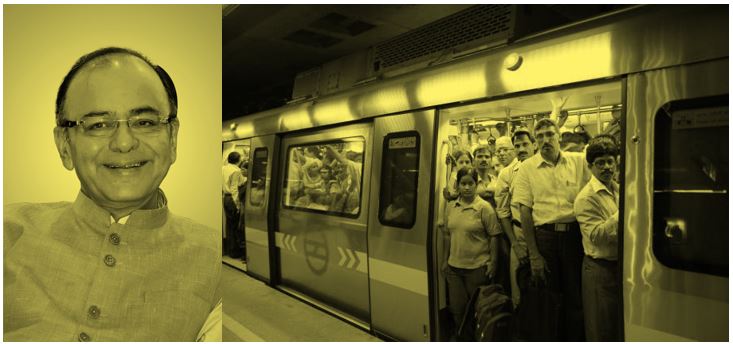Differences in living conditions and standards are ever-present realities of any country, but are more pronounced in a developing country like India. And even more pronounced in India perhaps, being infamous for its largely corrupt government, with no distinction between institutional hierarchies – it is prevalent right from the village panchayat to the upper echelons. And so it is no surprise that any step taken by the government to ease the life of the deprived classes almost inevitably carries with it an undercurrent of personal or ulterior motives, stemming from both the public as well as its leaders. And so the real question is about who the culprit really is.
Focusing on taxation in India, income tax accounts for roughly 18% of the total tax revenue collected by the government, second only to corporate tax, coming in at 40% of the total revenue.
On an average, 25% of all income of an individual – across all types of income stipulated by the IT department except agricultural income – is deducted. Tax Deducted at Source (TDS) is a tool exercised to efficiently collect this tax, as it deducts the requisite tax even before salary/income is released to the individual’s account. Corporate tax on the other hand is levied at an average of 30%.
And as is the norm with India, exemptions are the rule, and accordingly many exemptions are made in terms of taxation, ranging from the profit/loss scenario of the firm to the crux of the Indian demographic – reservation based on caste. Some of these exemptions, modelled after the financial difficulties faced by the deprived, are a step forward for the country, but others such as reservation herald injustice. In my personal experience, I have encountered many cases of fee reimbursement based on caste reservation being successfully availed by students whose families are extremely financially sound. In a country riddled with corruption at every level, it is not difficult to obtain fake income certificates; and maybe one day even fake caste certificates.
Even outside the realm of education, many firms get away with tax returns or reduced tax rates by producing fake audit reports or bribing the auditor. Another question to be asked at this juncture is whether the ‘poor’ are actually poor. As illustrated in the photo, the poor are not actually poor – with HD dish antennas adorning their rooftops, multiple two-wheelers at their doorstep, and smartphones in their hands – they effectively maintain a façade in order to avail the many benefits that the government, and by extension its taxpayers, unwittingly provide.
And the freebies they receive during election campaigns are the icing on top of the cake. Not all slums are like this, but the existence of similar ones is a grim reality. Relatively easy finance in the form of loans also factors into this. Against this backdrop, the brunt of taxation falls on the salaried class, which is incidentally the only section of taxpayers whose taxes can be monitored. If you have an account, your tax is deducted even before you get your salary. It is also a well-known fact that audits target only accounts of the salaried class – maybe because they are easy to check, or because money under the counter is involved. All middle class households fight a silent struggle against unfair taxation, and are in fact the ones being ostracized. This is not a secret; it is simply unspoken.
At the two-year mark of the new Modi government, it is now imperative to set up ideal conditions for launching new schemes by ensuring that the benefits go to the right people, and that the people providing these benefits, i.e., taxpayers, are taxed fairly. So before asking people to #GiveItUp, it is necessary to weed out malpractices that corrupt the intention behind such incentives. It is not fair for the real deprived classes to remain deprived, and it is not fair to deprive those who pay taxes of their money if it falls into corrupt hands. Passing the GST bill could be a way to go about this problem, since it effectively reduces the opportunities to avoid paying some taxes, by culminating all taxes into one unified tax on a national level.
Solving the tax problem could potentially pave the way to real economic progress in an equitable way.
The rich get away with it, the fake poor get away with it too, the real poor remain poor, and the middle class is stuck in the middle. Especially the urban middle class, which goes unnoticed amongst the throes of rural-dominated politics, at least where I come from. The middle class should take up the azaadi manifesto, azaadi from unfair tax. Accountability needs to be extended to the people as well, and the Mr. Jaitley must take steps to create it. In conclusion, more groundwork needs to be done before providing benefits to the people, in order to avoid the benefit becoming a burden to some classes of society.
Because that is not equality, it is injustice.
